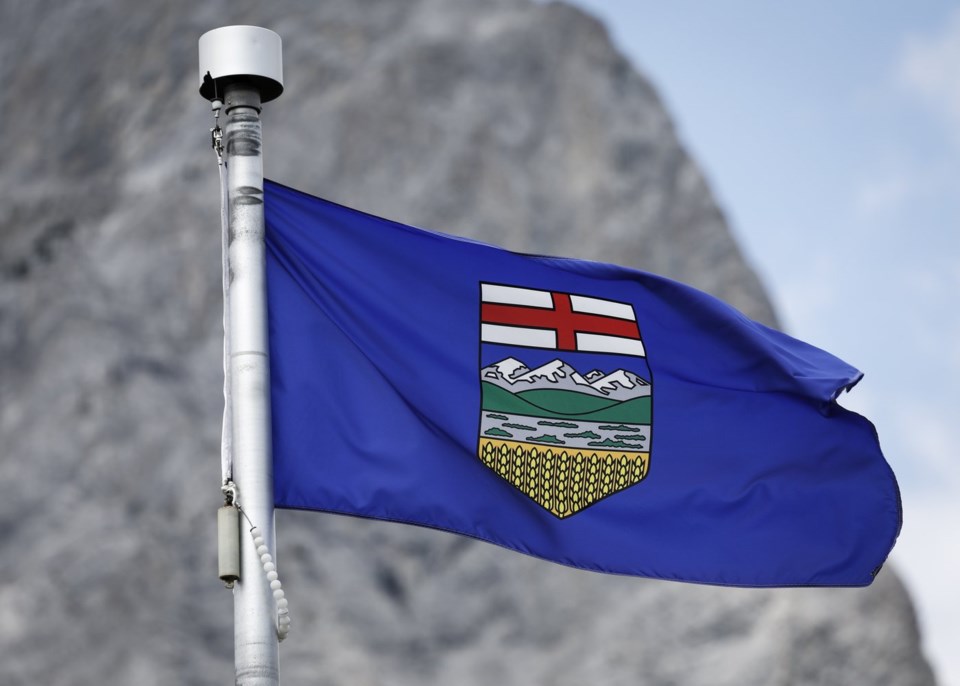CALGARY — The chiefs of four First Nations in Alberta say they're eager to take part in the province's nascent data centre industry, but argue the province is taking the wrong approach to attract large-scale tech players.
The chiefs of the Alexander First Nation, Paul First Nation, Enoch Cree Nation and Alexis Nakota Sioux Nation outlined their concerns this week in an open letter to Premier Danielle Smith and members of her government.
"There are shovel-ready proposals backed by major industry players aligned with government objectives that will be left stranded without a change in proposed policy," the chiefs wrote.
"Alberta should be a premier destination for hyperscale data centre investment. But strengths only matter if we act on them. Right now, Alberta’s ability to execute and deliver on its promise is in question."
Data centres are huge facilities housing the computing firepower needed for artificial intelligence and other applications. It can take an enormous amount of power to run and cool them. The chiefs say the amount of power the Alberta Electric System Operator has allotted to new projects falls short.
The Alberta Electric System Operator said earlier this month that it has received requests from 29 proposed data centre projects representing more than 16,000 megawatts — more than 11 times the City of Edmonton's load.
It said it will allow the connection of up to 1,200 megawatts of large load projects between now and 2028.
"Alberta has never seen this level and volume of load connection requests," said AESO CEO Aaron Engen.
“As the system operator, we are responsible for ensuring that new project connections do not compromise grid reliability. Because connecting all large loads seeking access would impair grid reliability, we established a limit that preserves system integrity while enabling timely data centre development in Alberta."
The Alberta government has set a goal of attracting $100 billion in data centre investment over five years.
But the chiefs wrote that the limit sends the wrong signal to tech powerhouses like Meta and Amazon.
"The hyperscalers 'don’t build small.' They think in gigawatts, because their global operations require that scale," they wrote.
"Under the current proposal, not even one such flagship project may be fully realized here without years of delay, since 1,200 megawatts total divided among many projects signals that Alberta isn’t prepared to accommodate a true hyperscaler’s needs.
"This sends an unintended but clear message to investors that Alberta’s actions do not match its ambitions."
The Alberta government supports the "balanced approach" the AESO is taking, said the press secretary for Affordability and Utilities Minister Nathan Neudorf.
“Alberta aims to be the destination of choice for AI data centres in North America," Ashli Barrett said in a written statement.
"At the same time, our government will always put the well-being of Albertans first and ensure data centre projects will not compromise the affordability or reliability of the electricity that millions of Albertans, First Nations, and our local industries depend on."
Barrett added the 1,200-megawatt limit is short-term and should not be thought of as a cap.
"It will enable data centre projects in advanced stages of planning and development to get started, while government works to develop a long-term framework for data centres, which will provide additional pathways for data centres projects to meet their power needs, including encouraging them to bring their own power."
Chief Tony Alexis of the Alexis Nakota Sioux Nation northwest of Edmonton said his community is looking at taking an equity stake in a project, and discussions are in the early stages.
He said First Nations want more than to be consulted — they are ready to invest.
"Our nations have been growing. We've got young populations and this industry can bring some real training, some jobs, some long-term prosperity for our community," Alexis said in an interview.
"Alberta is aiming for a championship-level digital economy. We just need the stadium doors open wide enough so that the star players can participate and everyone wins."
This report by The Canadian Press was first published June 27, 2025.
Lauren Krugel, The Canadian Press



